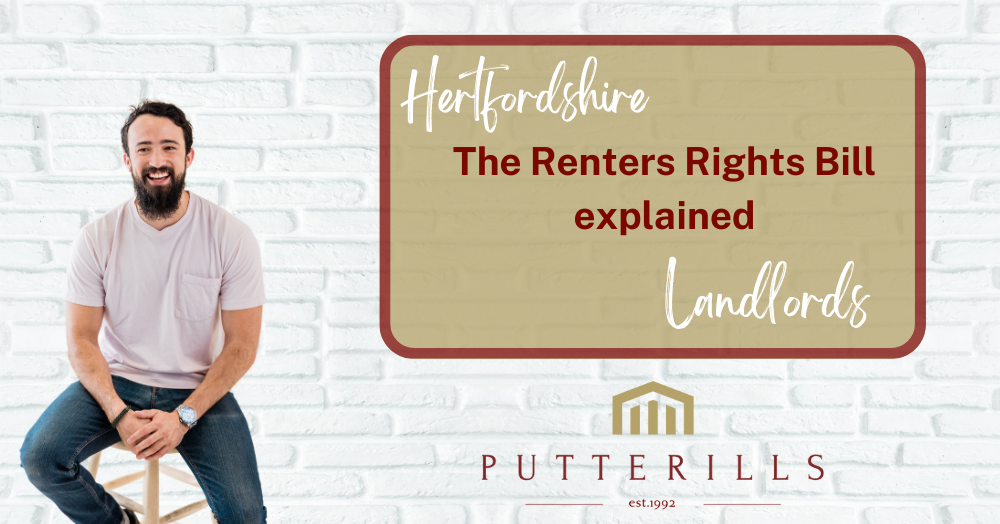Contact Putterills today to learn more about the Renters Rights Bill and how we can help you with all your property needs.
The Renters Rights Bill explained
Labour has published a new bill that could change how renting works in England. The Renters Rights Bill aims to make renting fairer for tenants whilst also protecting good landlords.
Let’s break down what this means for landlords and tenants.
When will the Renters Rights Bill become law?
The Renters Rights Bill has had its first reading and is still in the early stages of Parliament. It will still need to go through the House of Commons and House of Lords before becoming law.
With Parliament reconvening next month, further discussions will take place then. We will keep this page updated with further developments.
The Bill is likely to move swiftly due to Labour’s majority and its position as a key manifesto commitment. Housing Minister Matthew Pennycook expects it to pass by the summer of 2025.
What is the Renters Rights Bill?
The Renters Rights Bill is Labour’s plan to improve the rental market. It’s not law yet, but it could bring about significant changes if it passes. Here’s what the Bill contains:
Abolish Section 21
The Bill wants to end Section 21, so-called “no-fault” evictions. This means landlords would need a good reason to ask tenants to leave. However, with strengthened grounds for possession, Landlords will still be able to get their property back if they need to.
This update will impact both existing and new lets. However, the finer points of implementation and the court system’s readiness for increased demand are still unclear. We’ll share more details as they become available.
Give tenants more power to challenge rent increases
Tenants could challenge significant rent increases more easily. The Bill also aims to stop bidding wars for rentals. It might even make it easier to keep pets in rental homes.
Make homes safer with a Decent Homes Standard and Awaab’s Law
It would appear that Awaab’s Law will now be extended to private rentals, all homes would need to meet certain safety standards, and landlords would have to fix health hazards quickly when tenants report them.
Additionally, a new Decent Homes Standard will aim to reduce the number of poor-quality rental homes available.
Create a digital property database for the private rental sector
There would be a new online system with important updates for landlords, tenants, and councils. Designed to ensure all parties understand their rights and duties better, the database would ensure:
- Tenants gain access to essential details to make informed decisions when starting new tenancies.
- Landlords understand their legal responsibilities and how to demonstrate compliance.
- Councils efficiently target enforcement efforts, improving overall housing standards by focusing on areas with the most non-compliance.
Set up a property ombudsman
A new property ombudsman is proposed to help solve disputes between landlords and tenants and reduce the number of escalated cases.
Make it illegal to discriminate against tenants
The Bill wants to make it illegal to refuse to let tenants who receive benefits or have children. It is as yet unknown how this would work in practice when it comes to properties that are not suitable for young children.
Give councils more enforcement powers
Local councils could do more to find and punish bad landlords. If this goes ahead, local councils’ enforcement powers will be strengthened, ultimately driving bad landlords out of the sector.
How can Putterills Lettings help?
At Putterills, we know changes like this can be confusing. Whether you’re a landlord or a tenant, we’re here to help you understand what the Renters Rights Bill could mean for you.
If you have questions about renting or how these changes might affect you, just ask us. We’re always happy to explain things in simple terms and give you the support you need.


